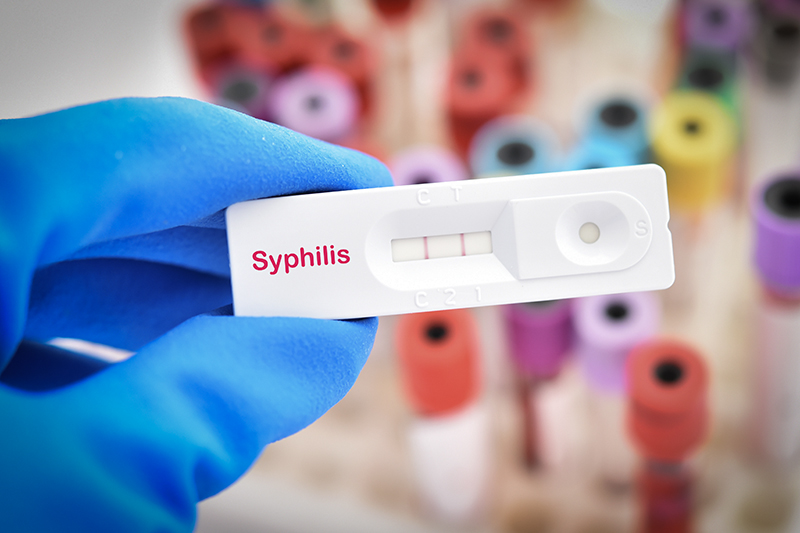Whether daily or on-demand, PrEP reduces HIV infection
New study confirms that PrEP taken when needed is still effective

The results of two European studies have confirmed that PrEP (pre-exposure prophylaxis) can reduce the rate of HIV infection in men who have sex with men (MSM).
However, not all studies are created equally — one matched the Center for Disease Control and Prevention (CDC) recommended dosing strategy of one pill, taken daily, while the other study tried a more novel approach, with participants taking the pill as needed, depending on when they had sex.
First, the British study. Conducted by the U.K. Medical Research Group in an open-label study called PROUD, MSM were split into two groups, with one given a daily dose of Truvada, brand name for tenofovir plus emtricitabine. The findings of the study confirmed those of multiple other studies around the world, that a daily regimen of PrEP can reduce the rate of HIV infection — in this case, by 86% among study participants.
The CDC’s current guidelines for PrEP state that it can “reduce the risk of HIV infection in people who are at high risk by up to 92%.” In a press release, the CDC welcomed the results, claiming the findings of the PROUD study “adds to the substantial evidence regarding the efficacy of daily oral PrEP.”
Next, and more controversially, the French IPERGAY study, which was undertaken by France’s national HIV research agency ANRS. In their study, the men provided with PrEP were instructed to take the drug as needed based on when they were having sex. It prescribed a three-day regimen of Truvada to be taken before and after sex.
Two pills were to be taken between two and twenty-four hours prior to having sex (or one pill, if the last course had been between one and six days prior). One pill was to be taken twenty-four hours after the pre-sex dose, with a final pill to be taken another twenty-four hours after that. Should participants engage in further sex before they finished the three-day regimen, they were to continue taking one pill daily until two days after they last had sex.
As a result, the number of days PrEP was taken by participants varied depending on their level of sexual activity — according to the findings, some participants achieved near daily use, matching the regimen recommended by the CDC.
Even with variations between participants in how often they required PrEP, the study’s findings are conclusive: On-demand PrEP reduced the rate of HIV infection by 86%. The rate of efficacy was deemed sufficiently high that the study was stopped after two years and more than 400 participants enrolled.
However, the director of the CDC’s National Center for HIV/AIDS, Viral Hepatitis, STD & TB Prevention, Dr. Jonathan Mermin, was quick to caution the findings of the IPERGAY study.
“The IPERGAY trial provides the first evidence that an event-driven regimen is effective among high-risk MSM with frequent sex,” he said. “Since available data suggest that men in this study were taking PrEP an average of three to four days per week, CDC cautions that researchers do not yet know if this regimen will work among MSM who have sex less frequently and would therefore be taking PrEP less often.”
“It is not known whether the regimen will work if taken only a few hours or days before sex, without any buildup of the drug from prior use,” he continued. “Studies suggest that it may take days, depending on the type of sexual exposure, for the active drug in PrEP to build up to an optimal level for preventing HIV infection.”
Dr. Mermin also highlighted that the study was specific to the control group and couldn’t be extrapolated to cover heterosexual people, nor users of injection drugs. As such, the CDC stands by its recommendation of PrEP taken as a daily dose. Still, Mermin hailed the findings of the IPERGAY study, and others which are seeking ways to provide PrEP to people without the need for a daily pill.
“We applaud ongoing efforts like IPERGAY to identify PrEP dosing strategies that may be more acceptable than oral daily dosing for some individuals at risk, and could potentially lower costs,” Mermin stated. “In addition, researchers are working to identify alternative delivery vehicles, including injectable PrEP and insertable products such as a vaginal ring. These are exciting avenues for research.”
As for anyone considering PrEP, which is recommended by the CDC, FDA and the World Health Organization as an effective additional barrier against HIV infection when combined with condoms and other safe-sex measures, the CDC has a simple message: speak with your doctor.
Image Credit: Jeffrey Beall / Wikimedia
Support Metro Weekly’s Journalism
These are challenging times for news organizations. And yet it’s crucial we stay active and provide vital resources and information to both our local readers and the world. So won’t you please take a moment and consider supporting Metro Weekly with a membership? For as little as $5 a month, you can help ensure Metro Weekly magazine and MetroWeekly.com remain free, viable resources as we provide the best, most diverse, culturally-resonant LGBTQ coverage in both the D.C. region and around the world. Memberships come with exclusive perks and discounts, your own personal digital delivery of each week’s magazine (and an archive), access to our Member's Lounge when it launches this fall, and exclusive members-only items like Metro Weekly Membership Mugs and Tote Bags! Check out all our membership levels here and please join us today!





















